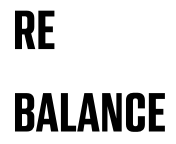BLOG: Fostering Multilingualism for Inclusion in Education and Society.
On the 6th of March 2018 I was honoured to attend the Investiture at Buckingham Palace and receive an OBE. I thought it was personally symbolic that this event was so close to both International Women’s Day and International Mother Language Day.
I’ve been fascinated by my inner dialogue, and the conversations triggered by being awarded an OBE. My family and friends were so proud, it was a truly humbling experience. We had lots of Obi-Wan jokes, lots of curtsy practising, and I really enjoyed fuelling my inner megalomaniac by regularly ordering “off with their heads” in my best Queen of Hearts voice!
However, leading up to accepting the honour, I had many deeper, and more thoughtful reflections that I’d like to share today. I am a British Bengali. The UK is my home. I’ve proudly dedicated my career to social good. I love my work, it is purpose-led. With the words ‘Excellence’ and ‘Empire’ in the title of the OBE, I would like to think I represent British ‘excellence’. The word ‘Empire’ does not resonate with my sense of integrity. Colonial policies during the British Raj of my birth country ensured communities turned on each other for almost 200 years, its legacy still playing out in our homes today.
Growing up, at family gatherings conversations of the Raj and the Empire would result in fallout. The word ‘traitor’ hurled by an aunty at an uncle from another village would often be the last straw. To my shame I only discovered the brutality of its legacy at a museum in Dhaka just 10 years ago. I cried and I could feel my heart bleed as I walked through the historical account of famine and devastation. This was the legacy of the empire, and I understood why I was not taught this history in school.
My dual identity has a massive hole in it and my sense of belonging has been disrupted by the words ‘go back to where you came from’ which I have repeatedly heard throughout my life. My fuel for life comes from the hardship, the health inequalities and injustice my community continue to experience. That’s the main reason for accepting the OBE - to honour the courage and resilience of my family, to have a seat at the table, to have a voice, and to challenge systems by bringing an alternative perspective. I am so proud of my dual heritage; my limited Sylheti is my mother tongue and my not-quite-Queen’s English is my pride. The ability to communicate in many ways is a privilege I don’t take for granted.
Both my dad passing away and the award of an OBE have sharpened my focus for my search to understand my British Bangla identity which started with a conversation with Abdal Ullah, one of the founders of British Bangladeshi Power and Inspiration on a snowy day in February 2018. He had called to invite me to an event to mark the 40th anniversary of the death of Altab Ali, a 26-year-old man who was murdered in a racist attack in Brick Lane on 4th May 1978. Altab Ali’s murder was a turning point for the British Bangladeshi community. It brought us together and forced us to stand up and make our presence known, to demand the right to be a respected and protected part of the society we lived in. Over the past 50 years I’ve seen my family shift from living out of a metaphorical suitcase to settling and laying down roots in this county.
My dad ran restaurants and dealt with racism pretty much every day of his working life. He would say to me: “This is not your home. We are not here to build a life, we’re just visitors working away from home”. And as a child I remember thinking: “But I don’t know any other home”. It’s difficult to describe how it felt growing up as a ‘visitor’, not a citizen.
But the benefit of seeing the world through tourist eyes was curiosity – I was interested in everything – and in search of my place in the world. George Santayana, wrote: “Those who cannot remember the past are condemned to repeat it.”
I may now be an Officer of the Most Excellent Order of the British Empire – but together with many others, I don’t necessarily agree that the Empire was wholly excellent. However I do know that I would not be here today representing Bengalis, women, and mental health had it not been for the East India Company and the merchant navy which recruited my grandad, and I’m incredibly proud of my British Bangladeshi identity.
The OBE is for my service to mental health and I take only part credit for that recognition. My entire work family has played a significant role in making that bit happen. What I do take full credit for is consistently remaining curious, and always wanting to make sure my children felt home was home. I wanted to be a role model and encourage others to believe that anything is possible.
I guess I took Dad’s words as a challenge to see if I could build a home, and not just visit. I took Santayana’s words to remember the past, and take pride in representing difference today. I honour the memory of all those Bengalis who lost their lives and on whose shoulders my generation of Bengalis stand.
I am a proud British Bengali woman and I’m committed to celebrating today and every day that I grew up speaking Sylheti.
